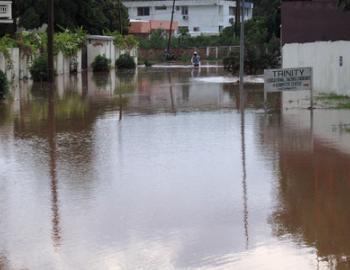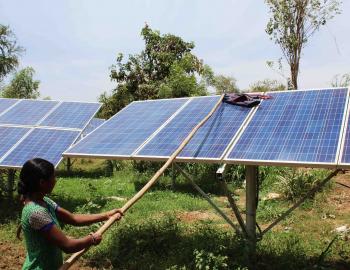SREX: Lessons for the water sector
SREX: Lessons for the water sector
The Special Report on Managing the Risks of Extreme Events and Disasters to Advance Climate Change Adaptation (SREX) was commissioned by the Intergovernmental Panel on Climate Change (IPCC) in response to a recognised need to provide specific advice on climate change, extreme weather and climate events (‘climate extremes’). The SREX report was written over two and a half years, compiled by 220 expert authors, 19 review editors and takes account of almost 19,000 comments. It went through three rigorous drafting processes with expert and government review. The findings were approved by the world’s governments following a four-day meeting, where the Summary for Policy Makers was agreed. It thus provides the most complete scientific assessment available to date and describes the immediate and long-term action required to manage the risks we face. It comprises of a policy summary released in November 2011 and a full report released in March 2012 (available online here).
This thematic brief, Managing Climate Extremes and Disasters in the Water Sector: Lessons from the IPCC SREX Report, summarises the key findings of the report relevant to water resources and water management. It draws exclusively on material from SREX. It includes an assessment of the science and the implications for society and sustainable development. It is intended to be useful for policy-makers, decision takers and planners, locally, nationally and regionally. In recognition that these readers will have many competing calls on both their time and budgets, this brief seeks to highlight key thematic findings and learning from SREX. It makes suggestions for immediate action to avoid further damage from climate extremes and to build a more resilient future with benefits that go beyond water management.
For water sector policy-makers and planners, or indeed anyone whose work contributes to the management of water, this brief should prompt discussion and understanding of several questions:
1) Why are extreme events a critical issue for water management?
2) How is the water sector affected by the risk and impact of extreme events?
3) What actions can be taken to manage these risks?



